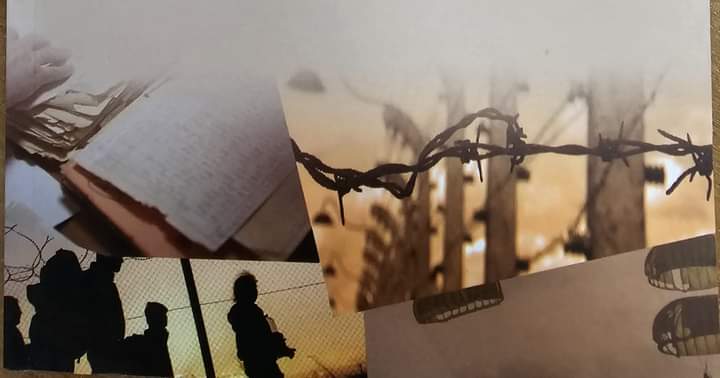
Call for presentations for the Symposium:
From past to remembrance – Symposium on the Borders of Dictatorship during the years 1944–1991
The protection of the borders was considered by the communist regime just as necessary as the suppression of any form of internal opposition that threatened communist power. Therefore, the Border Forces held exceptional importance in preserving the regime from threats both from outside and within the country throughout the entire communist period.
The Border Forces were tasked with preventing the escape of Albanian citizens abroad. (an act for which they were executed) and to block any entry of Albanians or foreigners from abroad (in this case, illegal immigrants also faced the death penalty, as they were considered “saboteurs”).
Starting from 1949, the majority of Albanians killed by the Border Forces in the areas of Korçë, Ersekë, and Pogradec were due to attempts to cross the country's borders.
The units of the Border Forces were mainly composed of young Albanians recruited through mandatory military service, which during the communist period lasted three years. Given their role, these young men were selected from families considered most loyal to the party. Local residents were also involved in border control activities; they were periodically indoctrinated and were the only civilians permitted to keep weapons at home, mostly as trophies from World War II. For this reason, during the “depopulation” process that began in 1945, the government took care to remove from the border areas all families considered less loyal to the regime and ordered their relocation to areas far from the borders.
While the world had established rules for the protection of individuals crossing borders illegally, through the Geneva Convention on the Status of Refugees, which was adopted on July 28, 1951 and entered into force on April 22, 1954, in Albania executions and arrests of citizens attempting to cross the country’s borders continued.
At the AIDSSH archive, a wide range of archival documents is preserved and managed, containing and addressing information and data about individuals who succeeded in escaping the communist regime, those who were deprived of their freedom of movement, and those who were executed while attempting to cross the border in the areas of Korçë, Ersekë, and Pogradec. These documents include registers, statistics and records, reports, and accounts concerning individuals who attempted to cross the border in these regions.
From the current study of the above archival documents, for the period 1944-1991, it appears that 619 individuals who managed to cross the border; 55 individuals who were arrested while attempting to cross the border and 16 individuals who were executed at the border.
Within the framework of this topic, AIDSSH has organized scientific conferences and exhibitions of numerous inventories belonging to the period 1944-1991, some of which have been displayed for citizens and researchers during the event. “Exhibition of Archival Documents held on May 8 in the Authority’s premises, during which guests from circles of researchers, historians, the media, and associations of former persecuted and politically persecuted persons participated. This event also served as a starting point for the development of this Symposium.
The Authority is in the process of collecting oral testimonies from individuals who successfully escaped communist Albania, as well as testimonies from the families of those killed at the border during attempts to cross in the areas of Korçë, Ersekë, and Pogradec. For this purpose, the Authority has approved a questionnaire.
To discuss the escapes, killings at the border, oral testimonies, and research work on the “borders of communist Albania,” as well as to honor all those who were killed or arrested in the border areas of Korçë, Ersekë, and Pogradec,
With the hospitality of the Pogradec Municipality,
The Authority for Information on Former State Security Documents
in cooperation with
The Anti-Communist Association of Former Politically Persecuted Democrats of Albania
The Municipalities of Korçë, Ersekë, and Pogradec;
The Department of History (FHF);
The Institute for Studies on the Crimes and Consequences of Communism,
The Institute of Spiritual and Cultural Heritage of Albanians, in Skopje,
The “Lumo Skëndo” Institute of Historical Studies
The Institute of Integration and Former Politically Persecuted Persons
and
the ICMP
They invite you to submit proposals for presentations on these issues:
The proposal should be in the form of an abstract, no more than 300 words, and must be submitted by July 31, 2024, to the email address: info@autoritetidosjeve.gov.al
Participants will be notified of their selection no later than August 9, 2024.
The conference will take place on August 27-28, 2024, in Pogradec.
(Depending on applications and participation, it may be extended to 1 or 2 days)
Scientific Council:
Dr. Ornela Arapi (AIDSSH)
Dr. Brunilda Çërraga (AIDSSH)
Dr. Edlir Orhani (AIDSSH)
Assoc. Prof. Dr. Enriketa Pandeljemoni (Papa) (Faculty of History and Philology)
Dr. Armanda Hysa (Institute for Studies on the Crimes and Consequences of Communism)
Contact Us